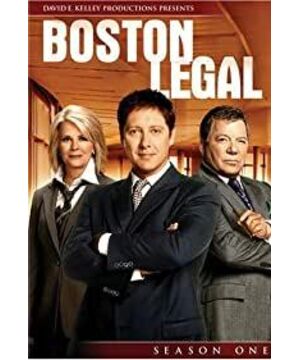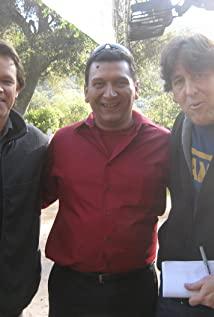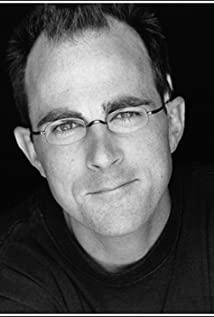The fifth season of Boston Legal started with a tobacco lawsuit, which indeed set itself a higher starting point. Bethany, who appeared in previous episodes, appeared again, acting for the daughter of a deceased smoker to sue the tobacco company. They entangled with the defendant for 6 years, and an elderly doctor and expert witness were summoned by the court. He testified 13 times, and the case was still inconclusive until his death. Bethany is hopeless and asks Alan for help, so a wonderful tobacco litigation battle begins. However, many lawyers in the firm, including the magical Alan, believe that this is a difficult lawsuit, even for law firms like Crane, Poole & Schmidt, it is difficult to fight the lawsuit.
Tobacco companies are not unsuitable, but difficult to sue: time is very busy, expensive, and the hope of winning is very slim. Therefore, tobacco companies are almost unsuitable. In general, civil lawsuits against tobacco companies mainly have the following difficulties:
First, how to prove the causal relationship between smoking behavior and health damage. Tobacco is toxic, but the health damage of smokers can be caused by many reasons, not just because of smoking. As demonstrated in the Boston Legal S5E1 case, the lawyers of the tobacco company can list countless possible causes of damage to the health of smokers: family inheritance, working environment, radon, silicon, chromium and other trace elements that may be contained in the house, and so on. Tobacco company's lawyers can apply Brandeis's procedural law to the point where the plaintiff is unable to prove the causal relationship between the two, this type of prosecution will not even pass the pre-litigation hurdle.
Another difficulty in tobacco litigation is that there is a huge gap in the strength of the two parties in the litigation. Tobacco is an extremely profitable industry, and it is also a rare industry in which the stock price and profit of a company are directly related to legal proceedings. Therefore, tobacco companies are willing to extract a large part of the huge profits and use it to deal with the lawsuits brought by smokers. Tobacco companies can hire the best defense lawyers to defend themselves, and can use money to support scientific research that is beneficial to them and use them as evidence in their own litigation. They find ways to delay the case indefinitely until the plaintiff is brought down. Relatively speaking, the power of a single consumer can be said to be minimal, and few people can withstand a long litigation battle. US law gives smokers the right to file a class action lawsuit. The purpose is to unite scattered consumers against the powerful tobacco companies, while also using a huge punitive damages system to provide material compensation to successful consumers.
In the play, Alan issued a powerful question to the jury during the closing: Everyone knows that tobacco is a highly toxic substance, and their role is equivalent to a drug. How can this substance become a legal commodity? Tobacco companies have also printed warning signs that "smoking is harmful to health" on cigarette packages, but cigarettes are still unimpeded in the market. Faced with this strange situation, where is the government? Where is the law?
The U.S. government also wants to ban smoking. Clinton, a former smoker, had the idea to kill tobacco companies. However, there is no law to equate tobacco with drugs. Therefore, there is no alternative to this industry government that has existed for hundreds of years. This also shows that The lobbying policy of tobacco companies is very effective. However, the U.S. government did not give up. As the government spends a lot of money in advocating smoking bans and coping with various social problems caused by tobacco, the U.S. government wants tobacco companies to spend the money. In 1999, the U.S. government filed a lawsuit against tobacco companies, demanding recovery of $280 billion in illegal profits, and accused the tobacco companies of deliberately concealing the truth about the harmful effects of smoking from the public. This lawsuit also dragged on for many years, but in the end, the tobacco company paid only 160 million US dollars for the settlement.
Of course, some governments themselves are unwilling to ban smoking. In the current situation where the tobacco industry cannot be completely eradicated, many countries have passed legislation to force tobacco companies to print warning slogans and promotional pictures on cigarette packages, and stipulate that these warning content should exceed a certain percentage of the total area of the package, so that consumers can Fear when buying cigarettes. According to the global "Framework Convention on Tobacco Control", tobacco companies must "use clear and eye-catching health warnings or pictures to inform smokers of the "harmful consequences of tobacco use", and warning signs occupy more than 50% of the visible part of cigarette packs." The Chinese government is a signatory to the Framework Convention on Tobacco Control and should fulfill its obligations under the treaty. However, the State Tobacco Monopoly Administration turned a blind eye to these treaty obligations in the "Regulations on the Labeling of Cigarette Packaging in China" and did not impose regulations at all, directly reducing the requirements for packaging. This regulation of the Tobacco Bureau was opposed by many parties as soon as it was announced. Experts from all walks of life unanimously bombarded this new regulation at a seminar in Beijing in September. The International Tobacco Control Organization also expressed their opposition to the Chinese government in recent days.
In addition, because countries control tobacco imports through various means, it is well-known "news" in the industry that tobacco companies encourage smuggling and even organize smuggling themselves in order to grab profits. On July 18, 2006, the British "Public Library Science" magazine published the article "The Key to the Future: British American Tobacco and Cigarette Smuggling in China". Dr. Kelley Lee of the London School of Hygiene and Tropical Medicine and Dr. Jeff Collin of the University of Edinburgh, after analyzing a large number of internal documents of British American Tobacco, believe that since the 1990s, British American Tobacco has been controlling the supply chain (agents and middlemen) and Prices are used to manipulate the cigarette smuggling market to China and other regions. The mode of operation includes the establishment of offshore companies in the UK and bonded warehouses in Singapore. It is estimated that only 5.4% of the cigarettes sold in China by British American Tobacco, the world's second-largest tobacco company, are imported through legal channels, and the rest are illegally entered into the Chinese market through smuggling channels. In the mid-1990s, Hong Kong seized a HK$8.5 billion cigarette smuggling case. Lu Jiankang, president of the export department of British American Tobacco (Hong Kong) Co., Ltd., was suspected of accepting huge commercial bribes from Han Guo Co., Ltd. and using forged documents to value 85. Cigarettes worth HK$100 million were smuggled and sold to mainland China, Taiwan and other places. But Xu Daoren, a well-known smuggled cigarette distributor who promised to testify for the government, was killed by the underworld in Singapore and thrown into the sea before the trial. The case has still been fruitless.
Is it to choose a huge amount of tobacco tax that is full of evil blood, or to choose the health of countless citizens? The next step is to see how the government, which claims that "entrepreneurs must be in the blood of ethics", decides between the two.
The road to tobacco control and elimination is long, and all parties are fierce and fickle on the way, but another extremely important factor lies in the self-control of smokers. Alan had just impassionedly stated the harm of tobacco and condemned the evils of tobacco companies in the court. After leaving the court, the two returned to the familiar balcony, and ended up talking with Denny on exquisite cigars as usual. A hard day's work (this lens does not meet the requirements of smoking ban).
"We all like to smoke these fragrant cancer sticks that can only be enjoyed outdoors. This is really a tragedy."
View more about Boston Legal reviews











